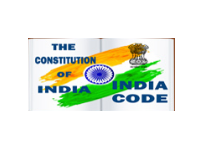Indicative academic backgrounds and areas of training, research and study relevant for the identified domains
Annex 13
| Domain | Indicative Academic Backgrounds (at Bachelor’s or higher levels) | Indicative Themes of training/study/research |
|---|---|---|
| Agriculture and Rural Development | All | Agril. Economics; Development Studies |
| Social Development | All | Education, Public Health, Development Studies |
| Culture and Information | Liberal Arts, Social Sciences | Media, Arts & Culture Administration |
| Natural Resources Management | Natural Sciences, Physical Sciences, Economics | Environmental and Natural Resource Economics, Forestry, Ecology |
| Energy and Environment (brown side) | Physical Sciences, Economics | Energy and Environmental Economics, Regulatory Studies |
| Communication systems and Connectivity Infrastructure | Physical Sciences, Economics | Economics of Infrastructure and Public Systems, Information Science, Regulatory Studies |
| Public finance and Financial Management | Economics, Physical Sciences | Public Financial Management, Public Finance, Public Choice, Macroeconomics |
| Industry and trade | Economics, Physical Sciences | Management, International Trade, Industrial Organization |
| Domestic Affairs and Defence | All | Security and Defence Studies |
| Housing, and Urban Affairs | Economics, Social Sciences | Urban and Regional Planning |
| Personnel & General Administration, Governance Reform, Regulatory Systems | All | Personnel Administration, Management, Public Choice, Regulatory Studies, O&M |
Note:
- The proposed themes of study/training, etc. would be in addition to any requirements of establishing general skills of policy formulation.
- Natural Sciences would include Life Sciences, as well as applied areas such as agriculture, forestry, medicine, veterinary science, etc.
- Physical Sciences would include Physics, Chemistry, Mathematics, as well as applied areas such as engineering (all branches), geology, etc. (In general, officers with Physical Sciences backgrounds also would have strong quantitative skills).
- Social Sciences would include Social Sciences other than Economics and Political Science, besides applied areas such as gender studies, social work, education, public health, architecture.
- Economics would also include applied areas such as Management Studies and Operations Research (with significant formal economics content).
- Liberal Arts would include: History, Literature, Philosophy, Political Science, Law, etc., besides applied areas such as media.
- Research accomplished should be reflected in publications in refereed journals/books.]






 कार्मिक एवं प्रशिक्षण विभागDepartment of
कार्मिक एवं प्रशिक्षण विभागDepartment of 













